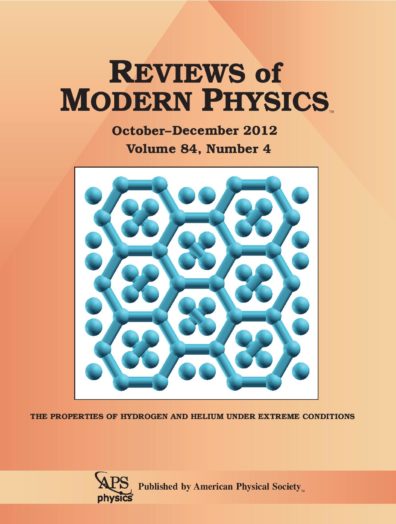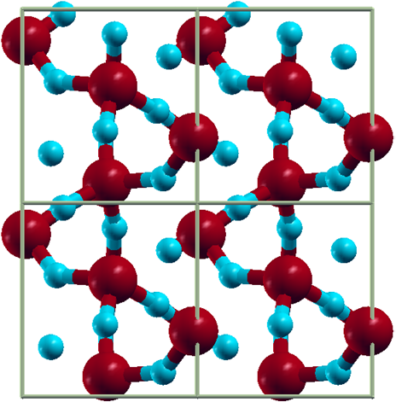Electronic Structure of Condensed Matter
The most familiar phases of condensed matter are solids and liquids. In these phases, the nuclei are often (but not always) considered classical, while the electrons must be treated quantum mechanically. In the McMahon Research Group, we model such phases starting from the fundamental equations of quantum mechanics. Systems of recent interest include dense hydrogen and dense water-ice, described further below.
More exotic condensed phases (e.g., quantum fluids and solids) are described here.
A discussion of the methods that we use, including method development is described here.
Dense Hydrogen
Hydrogen and helium are the most abundant elements in the Universe (they are the primary components of Jovian planets, for example). In terms of their electronic structure, they are also the most simple. However, in the condensed phase and under extreme conditions, they exhibit remarkable properties. Hydrogen, for example, is predicted to exhibit ordered quantum states, such as possibilities of a low- or zero-temperature quantum liquid and high-temperature superconductivity.
For a full review, see J. M. McMahon et al., Rev. Mod. Phys. 84, 1607–1653 (2012). This article was featured on the cover of Reviews of Modern Physics (left).
Dense Water-ice
Over the past decade, nearly two thousand confirmed exoplanets have been discovered, along with five thousand candidate ones. Of these, there have been an unexpectedly large number that are Neptune-like. The interiors of such planets consist largely of solid water (ice) phases. The properties of dense water-ice are thus key to understanding a major fraction of the planets that exist in our universe.
Under extreme conditions, water-ice exhibits unusual and potentially remarkable properties. As an example, the image to the right shows a predicted partially-ionic, atomic ground-state of dense water ice (J. M. McMahon, Phys. Rev. B 84, 220104(R) (2011)). Given the extremely high zero-point energy of the hydrogen nuclei, it is possible that they undergo quantum melting. This would mean that the properties of large, Neptune-like planets are influenced largely by quantum mechanics.

